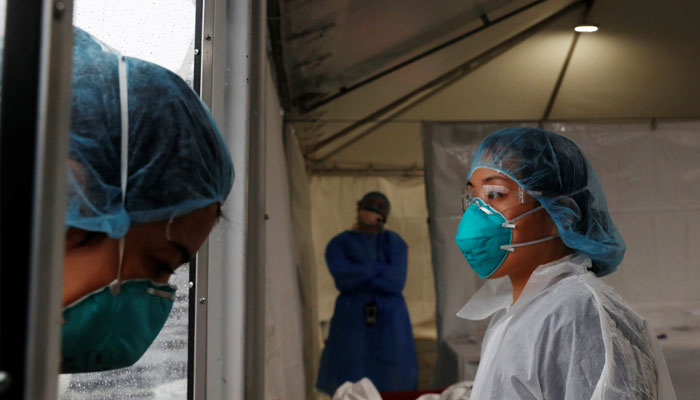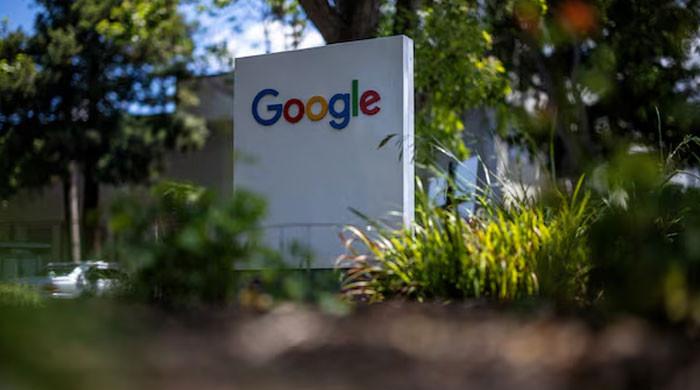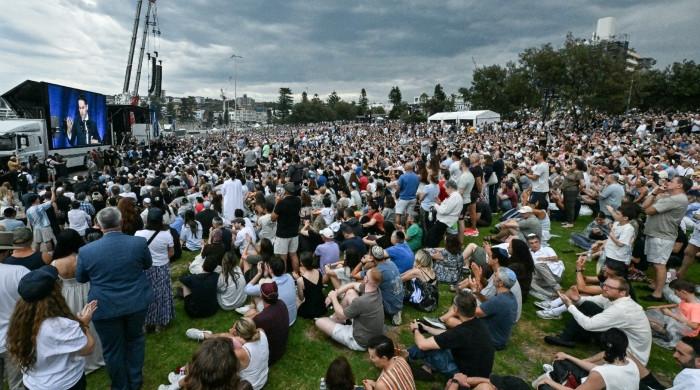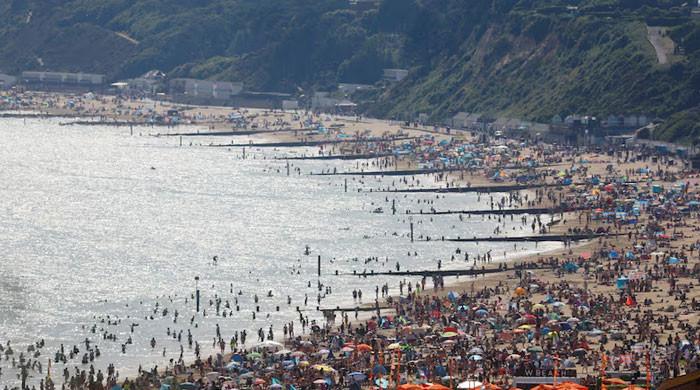US Congress approves $483 billion stimulus plan as death toll nears 50,000
WHO has warned that strict measures should remain until there is a viable treatment or vaccine for virus
April 24, 2020

Washington: The United States on Friday approved nearly half a billion dollars in new stimulus but European leaders were divided on their own measures as the world sought to salvage economies ravaged by the coronavirus pandemic.
Governments from South Africa to Vietnam, as well as states in the US, took steps to resume normal life amid debate whether a lockdown that has restricted the movement of half the planet has been in place long enough.
In scenes never witnessed in the tradition-bound US Congress, lawmakers covered their faces with masks and voted in small groups as the House of Representatives overwhelmingly approved a $483 billion stimulus plan.
The money will back small businesses on the brink of bankruptcy, and hard-pressed hospitals. It comes on top of $2.2 trillion package enacted in late March.
The House voted hours after data that another 4.4 million US workers had filed claims for jobless benefits, bringing the total to 26.4 million since the pandemic intensified. The world´s largest economy has been hit by about 50,000 deaths, more than any other country, and saw one of its deadliest days with 3,176 new fatalities in 24 hours.
The new package "is essential to protecting families across America and ensuring more small businesses have access to the resources they need," House Speaker Nancy Pelosi said.
President Donald Trump, with whom Pelosi frequently spars, said he would quickly sign the bill, which already passed the Republican-led Senate unanimously.
'Too little, too late'
In Europe, the worst-hit continent with 110,000 deaths, EU leaders haggled by video conference over their own package that could top one trillion euros.
The 27-nation bloc agreed to ask the European Commission, the bloc's executive arm, to come up with a rescue plan by May 6, sources told AFP.
Addressing the leaders by video, European Central Bank chief Christine Lagarde warned "there was a risk of acting too little, too late" and said that virus lockdowns could shrink GDP by as much as 15 percent this year, a source said.
The fight has reopened the wounds of the 2009 economic crisis with debt-laden southern states such as Spain and Italy, both badly hit by the disease, demanding help to get back on their feet.
"With the pandemic, nobody calls," says Pedro Oran, a 53-year-old Spaniard who usually works by helping a plumber, as he lined up to collect food for the first time at a Madrid soup kitchen.
But richer northern countries like Germany and the Netherlands, while saying they are ready to help for now, insist they will not take the long-term step of pooling debt with Mediterranean governments they accuse of profligacy.
New hopes raised
While the disease appears to be peaking in Europe and the United States, other nations are still in the early stages of the fight that has killed more than 190,000 people and infected 2.7 million worldwide.
The World Health Organization has warned that strict measures should remain until there is a viable treatment or vaccine.
The race is on around the world, with Oxford University launching a human trial of a potential vaccine on Thursday. Germany announced that similar trials will start by next week.
At the White House, scientists said they discovered that the novel coronavirus was quickly destroyed by sunlight, offering hope that the pandemic will ease as the Northern Hemisphere enters summer.
"Our most striking observation to date is the powerful effect that solar light appears to have on killing the virus, both surfaces and in the air," said William Bryan, science and technology advisor to the secretary of the Department of Homeland Security.
New research in France found that nicotine could protect people from contracting the coronavirus, although doctors stressed that smoking had many other deleterious effects.
Among coronavirus patients at a top Paris hospital, only five percent were smokers, compared with 35 percent of France´s general population, said Zahir Amoura, the study´s co-author and a professor of internal medicine.
Researchers plan to place nicotine patches on health workers at the Pitie-Salpetriere hospital in Paris to see if it protects them.
Gradual easing
Some European countries have slightly eased coronavirus measures but bans on large gatherings have been extended. Restaurants, bars and sporting events remain off limits.
South African President Cyril Ramaphosa announced in a televised address that a five-week lockdown would be eased starting on May 1 in a "deliberate and cautious" way.
South Africa, which has the continent´s highest number of coronavirus cases at 3,953, has seen the spread of infections slow under the lockdown.
But authorities have struggled to keep people indoors, especially in overcrowded townships, and many businesses feared they would not be able to recover from a prolonged shutdown.
Restrictions will be especially complicated for the Islamic world which on Friday begins Ramadan, when Muslims are forbidden from eating and drinking when the sun is up.
In the United States, the southern state of Georgia will move to reopen after the Republican governor gave approval for many businesses to lift their shutters on Friday.
But even Trump has voiced disagreement and Mayor Keisha Lance Bottoms of Atlanta, the state´s capital and largest city, has voiced alarm and pointed to rising infections in Georgia.
Despite the passage of the stimulus bill, political tensions remained high in the United States on future action.
The global response to the coronavirus has also become increasingly politicized.
China announced on Thursday that it will donate $30 million to the WHO to help fight the pandemic, days after Trump said he would freeze the $400 million in US funding.
Trump -- criticized at home for his handling of the crisis -- accused the UN body of helping China cover up the seriousness of the outbreak.









